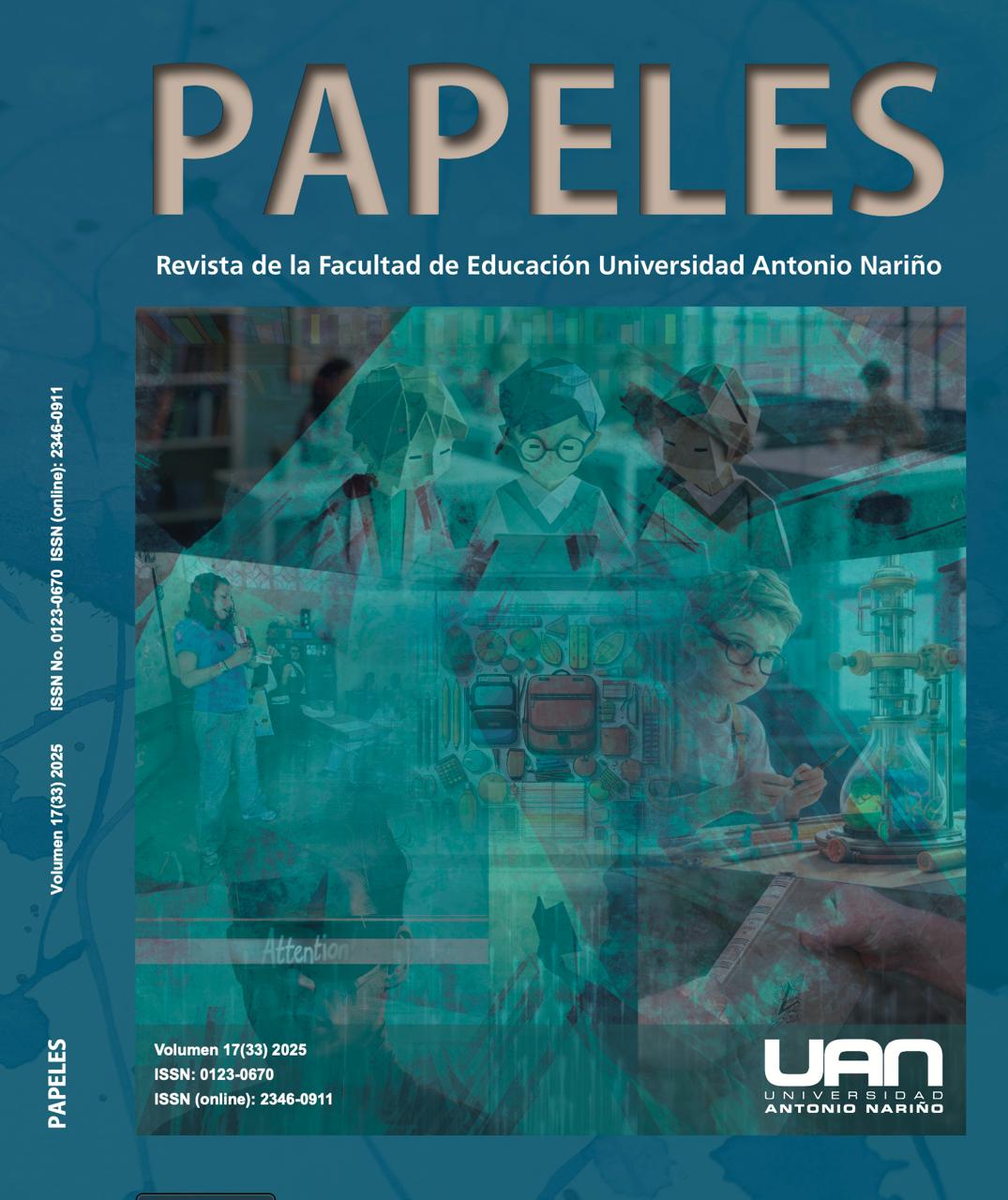University Social Engagement as a tool for managing tax culture in Ecuadorian popular businesses
Vinculación Social Universitaria como herramienta de gestión de cultura tributaria en negocios populares ecuatorianos
DOI:
https://doi.org/10.54104/papeles.v17n33.2146Keywords:
Higher education, community action, taxation, informal sector, community development, EcuadorAbstract
Introduction: University social linkage has emerged as a strategic tool to strengthen the tax culture in vulnerable territories. Its role as an agent of change allows promoting social transformation from an educational and participatory approach, especially in contexts where popular businesses and informal economies predominate. This research seeks to make visible the impact of these interventions, highlighting the need to promote tax equity and inclusion. Methodology: The study was developed under a mixed approach, with a descriptive and cross-sectional design. Surveys, interviews and direct observations were applied to entrepreneurs of popular businesses. This methodological combination made it possible to collect qualitative and quantitative information that delves into the accounting and tax practices of the economic actors studied. Results and discussion: The findings revealed a low level of knowledge about tax obligations, myths about taxation and ignorance of existing incentives in Ecuadorian regulations. Despite the fear of sanctions, the entrepreneurs were willing to receive training. This openness allowed the execution of training workshops that sensitized participants on the importance of tax compliance as a basis for local development. Conclusions: The university social linkage not only generated relevant data, but also boosted formative processes that promote formalization and economic empowerment. Making these impacts visible reinforces their value as a strategy for inclusion, equity and sustainability in territories historically excluded from the tax system.
Downloads
References
Bonilla, R., Monteros, A. y Cerezo, V. (2022). Educación y bienestar financiero, tarea pendiente en Ecuador y la región. Red de Instituciones Financieras de Desarrollo. https://rfd.org.ec/biblioteca/pdfs/LG-331.pdf
Bosque Cumbal, M. B. (2019). La planificación tributaria como instrumento idóneo para maximizar los beneficios económicos: Caso sociedades del subsector exportador de chocolate en el Ecuador [tesis de maestría, Universidad Andina Simón Bolívar]. https://repositorio.uasb.edu.ec/bitstream/10644/6861/1/T2941-MPTFI-Bosque-La%20planificacion.pdf
Cabrera Sánchez, M. A., Sánchez Chero, M. J., Cachay Sánchez, L. del C. y Rosas Prado, C. E. (2021). Cultura tributaria y su relación con la evasión fiscal en Perú. Revista de Ciencias Sociales, 27(3), 203-216. https://doi.org/10.31876/rcs.v27i.36503
Díaz Campos, J. A., Zareei Bogoya, A. y Ondó Sango, A. (2021). Bonos verdes bonos sociales: Titulización sostenible. En J. M.ª López Jiménez y A. Zamarriego Muñoz (dirs.), La sostenibilidad y el nuevo marco institucional y regulatorio de las finanzas sostenibles (pp. 315-344). Thomson Reuters Aranzadi.
Espinosa Taipe, D. y Hoyos Navas, K. E. (2019). Desafíos fiscales originados por la globalización de la economía y los esquemas de planificación fiscal agresiva. USFQ Law Review, 6(1), 57-76. https://doi.org/10.18272/lr.v6i1.1402
Espinoza, Z. R., Valenzuela-Bautista, S. M. y Valdiviezo-Andino, S. M. (2025). Tributación simplificada para emprendedores: ¿Facilitación o nuevo desafío? MQRInvestigar, 9(1), 1-17. https://doi.org/10.56048/MQR20225.9.1.2025.e400
Larrochelle Alay, G. B., Macías Loor, F. I. y Proaño Ponce, W. P. (2021). Educación financiera para el desarrollo de la cultura tributaria en la asociación agropecuaria de Machalilla. Polo del Conocimiento: Revista Científico-Profesional, 6(11), 1198-1209.
https://dialnet.unirioja.es/descarga/articulo/8219334.pdf
Lasio, V., Amaya, A., Espinosa, M.ª P., Mahauad, M.ª D. y Sarango, P. (2024). Global Entrepreneurship Monitor Ecuador 2023-2024. Global Entrepreneurship Monitor. https://www.espae.edu.ec/wp-content/uploads/2024/06/GEM-Ecuador-2023-2024.pdf
Lasio, V., Amaya, A., Zambrano, J. y Ordeñana, X. (2020). Global Entrepreneurship Monitor Ecuador 2019-2020. Global Entrepreneurship Monitor. https://www.espae.edu.ec/wp-content/uploads/2021/02/GEM_Ecuador_2019.pdf
Loyola-Torres, F. y Cordero-Guzmán, D. (2022). Régimen simplificado para emprendedores y negocios populares. Revista Arbitrada Interdisciplinaria Koinonía, 7(1), 734-760. https://doi.org/10.35381/r.k.v7i1.1886
Mena Trujillo, R. P., Narváez Zurita, C. I. y Erazo Álvarez, J. C. (2019). La planificación tributaria como herramienta financiera para la optimización de los recursos empresariales. Visionario Digital, 3(2.1.), 6-34. https://doi.org/10.33262/visionariodigital.v3i2.1.540
Organización para la Cooperación y el Desarrollo Económicos. (2023). Educación cívico-tributaria para fomentar la cultura tributaria, el cumplimiento fiscal y la ciudadanía. https://www.oecd.org/tax/tax-global/educacion-civico-tributaria-para-fomentar-la-cultura-tributaria-el-cumplimiento-fiscal-y-la-ciudadania-aspectos-destacados.pdf
Real Academia Española. (2023). Emprender. En Diccionario de la lengua española. https://dle.rae.es/emprender
Ruiz Cedeño, S. del M. y Palacios Dueñas, A. E. (2020). El emprendimiento en América Latina: Un análisis de su etimología, tipología y proceso. Ecasinergia, 11(2), 47-58. https://doi.org/10.33936/eca_sinergia.v11i2.2115
Salgado Monar, J. H. (2023). El emprendimiento en el Ecuador. LATAM: Revista Latinoamericana de Ciencias Sociales y Humanidades, 4(2), 4609-4634. https://doi.org/10.56712/latam.v4i2.923
Sarmiento Pérez, M. G. y Torres Negrete, A. de las M. (2023). Marco tributario ecuatoriano y planificación fiscal en la intermediación financiera del sector popular y solidario. Religación: Revista de Ciencias Sociales y Humanidades, 8(36), 1-25. https://doi.org/10.46652/rgn.v8i36.1048
Vásconez-Acuña, L. G., Montero-Cobo, M. A., Narváez-Zurita, C. I., Torres-Palacios, M. M. y Toaza-Tipamtasig, S. E. (2023). Educación financiera y tributaria para la sostenibilidad de las finanzas y generación de recursos de los gobiernos autónomos descentralizados municipales. Conrado, 19(90), 260-269. http://scielo.sld.cu/pdf/rc/v19n90/1990-8644-rc-19-90-260.pdf.
Downloads
Published
-
Abstract186
-
PDF (Español)65
How to Cite
Issue
Section
Categories
License
Copyright (c) 2025 Maria del Pilar Viteri Vera, Dolores Ortiz Guevara

This work is licensed under a Creative Commons Attribution-NoDerivatives 4.0 International License.






